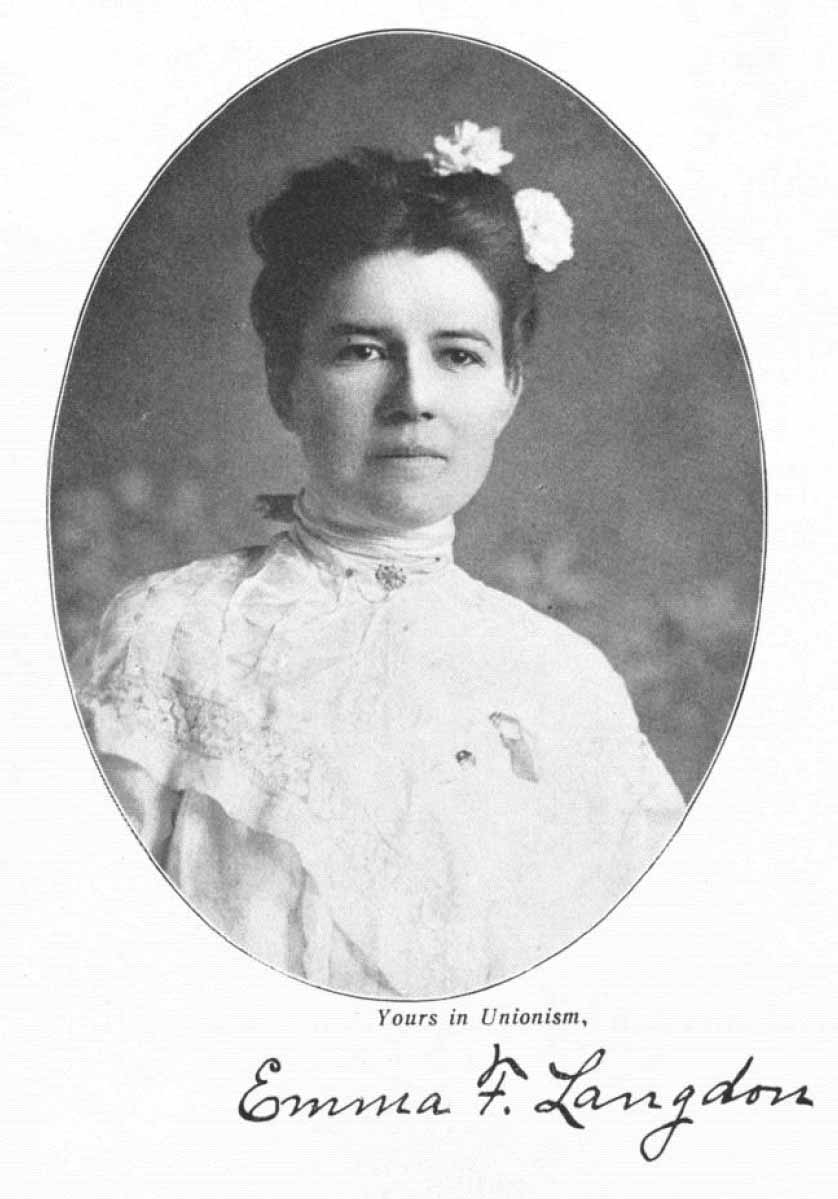Post by Doris McCraw
writing as Angela Raines

This is a re-posting
 |
| Entrance to the Gold Coin Mine, Victor, CO. photo property of the author |
Emma F. Langdon and the Power of Words
“THE state of
Colorado ceased under the administration of James H. Peabody, to be
republican in its form of government, and became a military
oligarchy. The expressed will of the people was ignored by their
chosen representatives; thus bringing upon the state a series of
calamities, the magnitude of which may now readily be seen.”
The
above is taken from the introduction to Emma's book “The Cripple
Creek Strike, A History of Industrial Wars in Colorado 1903-4-5”.
Regardless of your belief in who was right or wrong during this
tumultuous time, this book is considered the definitive work on the
region and events of the time and area. That it is written by a woman
makes it even more amazing.
 |
| photo from Wikipedia |
Here
then is the story of Emma F. Langdon.
Emma
was born on September 29, 1875, in Tennessee. She married Charles
Langdon, born June 9, 1870, in 1896. She also became a step-mother to
Lucille M. Lockett with this marriage. In 1900 the family was
residing in Junction City Kansas.
In
1903 Emma and her husband moved to Victor, Colorado and worked at the
Victor Daily Record. Although Emma had said a woman belonged at home
and not in public life, her sentiment was not to be.
On
May 15, 1893, in Butte Montana, saw the birth of the Western Federation
of Miners. It was comprised of forty delegates from fifteen unions
from the states of Colorado, Utah, Montana, Idaho and South Dakota.
Approximately six months later the unions were able to negotiate
shorter workdays (eight hours) and an increase in pay ($3.25 a day)
in the Cripple Creek-Victor area. In 1903 the tensions between miners
and mine owners increased. The union supported the smelter workers
who were working long hours and less pay.
The
situation became so volatile that the mine owners censored and
arrested anyone who opposed their edits. This resulted in the workers
at the Victor Daily Record being rounded up so that this pro-union
newspaper could not put out the next issue. When Emma was told of the
'arrest' she went to the paper and that night barricaded herself in,
set type and put out the paper on schedule. When she delivered the
issue to the men who had been taken to the 'bullpen' the laughter of
the captors changed and the incarcerated rejoiced.
 |
| Victor, CO photo property of the author |
In
1904 when the strike ended those who had supported the union were
requested to leave. Emma moved to Denver Colorado where she remained
until her death on November 30, 1937. She continued her work on
behalf of the union.
The
story of the Labor Wars in Colorado is full of people from both
sides that made their mark on the history of the region. From
1893-1914 and the Ludlow massacre, Colorado was a hotbed of conflict
between the haves and have-nots with errors in judgment on both
sides. Not an easy read, but a fascinating one.
In "The Outlaw's Letter" Hetty Osgood is also an independent woman who follows her calling, to unexpected consequences. Below is a short excerpt and the book is on sale, with other Lockets N Lace 2019 stories through Sept 20, 2019.
She'd seen him before, but not the way he looked now. It had been
twelve years ago, back in Kentucky. Her stomach clenched, her hand
started to shake. Fear made her grasp the beer she'd put down when
she was preparing to leave. Hetty looked down at her drink. Out of
the corner of her eye, Hetty saw the man turn her way. The look in
his eye was like a snake getting ready to strike. He started her way,
effectively blocking her from escaping. Well, if I can't get out
of here, then acting scared will do me no good, Hetty thought.
Taking
a big swallow, Hetty turned and stared at the man, holding her ground
by sheer will.
"Frank,
where's my drink?" he shouted as he reached the small space
along the bar where Hetty stood. Glancing her way, he smiled, really
more like a sneer. Reaching to grab the drink the bartender placed on
the bar. "Kid, you look familiar," the man commented,
looking Hetty over from head to toe. "Don't know where I've seen
you before, but I'll remember," he threatened as he walked
toward the poker table at the back of the room.
Now
what are you going to do? Hetty thought. She was torn between
staying and leaving. If she stayed and the man kept staring at her,
he would soon remember.
 |
| Purchase on Amazon |
Doris Gardner-McCraw -
Author, Speaker, Historian-specializing in
Colorado and Women's History
Colorado and Women's History
Member of National League of American Pen Women,
Women Writing the West,
Western Writers of America
For a list of Angela Raines Books: Here




![The Untamed West by [Washburn, L. J., Mariotte, Jeffrey J., Reasoner, James, Mayo, Matthew P., Rizzo, Tom , Hays, J.E.S. , Bell, Dorothy A. , Goheen, Ben , Raines, Angela , Doty, Dennis]](https://images-na.ssl-images-amazon.com/images/I/518WqFj3mKL.jpg)